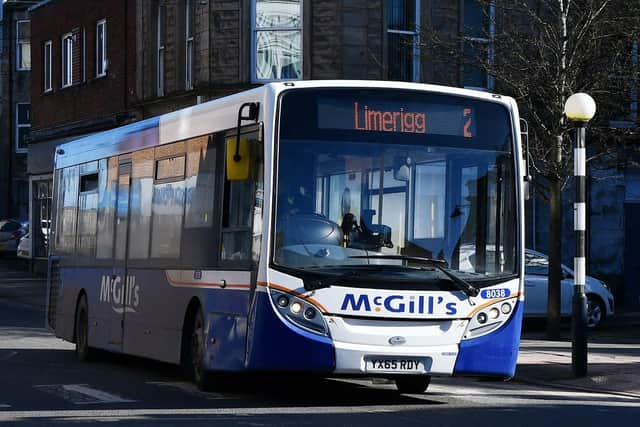Falkirk Council: Pilot project where bus passengers will need to book seats agreed by councillors
and live on Freeview channel 276
Bus services around Whitecross, Standburn and Wallacestone will be replaced with a bookable service from next April and if successful it will then be rolled out to other areas.
Officers told members of Falkirk Council’s executive today (Tuesday) that the new service would save money by no longer paying for “empty buses” on routes and would allow them to protect services.
Advertisement
Hide AdAdvertisement
Hide AdDemand responsive transport (DRT) means that anyone wishing to get a bus will have to call or use an app in advance to book their place on either a minibus or taxi depending on the demand.


The service will continue to follow the timetable that is currently operating and passengers will pay the standard bus fare, with all concessions still valid.
The only difference, councillors were told, is that they will have to book the service at least two hours in advance.
Michael McGuinness, Falkirk Council’s head of planning, climate change and growth, said that they hoped that the changes would protect services as much as possible.
Advertisement
Hide AdAdvertisement
Hide AdHe said: “We believe that we can provide the existing timetables for those routes but they will be based on demand. What we are trying to avoid here is lots of empty buses travelling around the area.
“It is a pilot, so if it doesn’t work we’ll come back and explain ourselves.”
Labour councillor Siobhan Paterson called for more time to consider how the scheme would work as she said her Upper Braes constituents had many questions that she was unable to answer.
She suggested that officers should bring a further report to the council with more details about how the scheme will work in practice.
Advertisement
Hide AdAdvertisement
Hide AdBut members heard that if the scheme was to go ahead in April, work on procuring contracts would need to start immediately.
The Conservative group backed the SNP’s proposal to agree to the pilot, although Councillor James Kerr said it must not be to the detriment of people living in any outlying area.
SNP councillor Paul Garner said the council has looked at other local authorities to develop the scheme and promised that the trial will be “closely monitored” as the template will be used to roll out the service in other areas.
Introducing DRT was just one part of a wider review of transport planning that aimed to save money as the cost of subsiding buses has risen by around 33 per cent in recent years.
Advertisement
Hide AdAdvertisement
Hide AdFalkirk Council spends nearly £1.6 million supporting local buses and other forms of public transport, such as Dial-a-Journey, every year.
Councillors heard that they are currently overspending by £270,000 and cuts to services that they are not legally obliged to provide would be necessary.
Councillors accepted proposals to amalgamate the F2 (Falkirk/Slamannan/Limerigg) and F29 (Falkirk/Shieldhill/California/Avonbridge) bus services from next April, which is expected to save around £75,000.
The current TaxiCard scheme will also end as councillors were told it costs far more to administrate than it offers in subsidy and has a small number of users.
However, councillors have agreed that any changes would not affect the Dial-a-Journey service, which provides door to door transport for people with mobility issues.